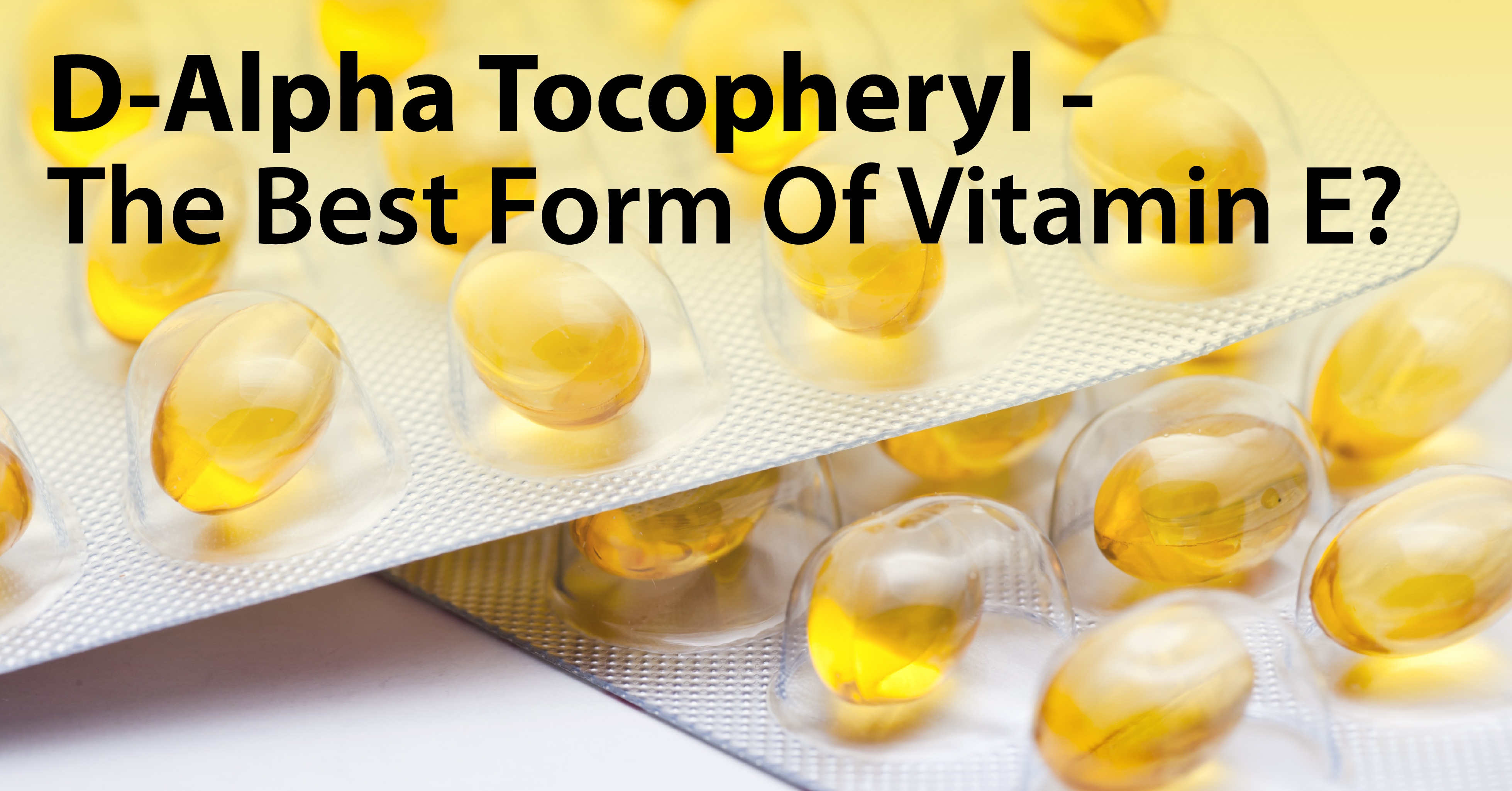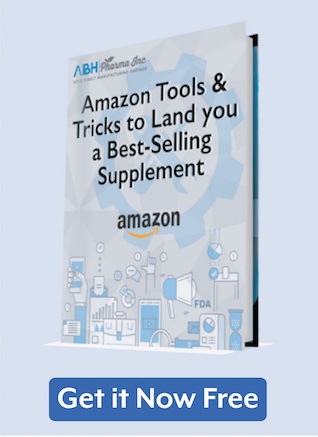While Vitamin E and D-Alpha Tocopheryl definitely go hand in hand, the whole subject of Vitamin E (especially its different forms) is still somewhat shrouded in mystery.
Even though this is arguably one of the most well-known vitamins out there, most people and supplement company hopefuls aren't aware of what the best form of Vitamin E is. That's why in today's post we'll be focusing on one of the most popular and renowned forms of this fat-soluble vitamin.
We'll take a closer look at the what this type of Vit. E actually is, what are its benefits, adverse effects and we are going to see what the scientific data has to say about it. And of course, why it needs to be in your supplement line!
So what exactly is D-Alpha Tocopheryl?
It's an organic chemical compound that's basically a form of Vitamin E and it's preferentially absorbed and accumulated in humans. Essentially,it is a fat-soluble antioxidant that also has many other functions in the body and it can be simply referred to as Vitamin E.
Now, Viamint E itself is a crucial vitamin that carries antioxidant properties. It also helps protect cells by fending off highly reactive free radicals, while also acting as the main defensive system against lipid peroxidation.

It's crystal clear that this vitamin possesses a wide range of functions and is especially important for protecting the cells free-radical damage, however, particular forms of this vitamin have more biological activity in the body than others.
That's why choosing the right type is vital if you're looking to optimize your supplement portfolio. And this brings us to the subject of the different types of Vit E and which one is the best.
What are all the different forms of Vitamin E?
There are 8 distinctive compounds separated into two unique categories (named "DL and "D") that are associated with Vitamin E and they are:
- Alpha-tocopherol
- Beta-tocopherol
- Delta tocopherol
- Gamma-tocopherol
and - Alpha-tocotrienol
- Beta-tocotrienol
- Delta-tocotrienol
- Gamma-tocotrienol
Among these, there's a clear winner when it comes to having the highest amounts of biological activity and concentrations in the blood. And it's called Alpha Tocopherol.
So is Alpha Tocopherol the best form of Vitamin E then?
Yes - along with Alpha Tocopheryl Acetate (the ester form of tocopherol) that carries the same amounts of bioavailability. It's safe to say that they're very identical, with the only difference being that the acetate form has alcohol in its structure.
In essence, Alpha-Tocopherol is so common in our bodies that it's the only type that's recognized as the gold standard when it comes to identifying the RDA (recommended dietary allowance) of Vit. E.
Also, this is a natural type of Vitamin E and the only kind of this vitamin that gets stored in the body. Speaking of which, there are two types of Vitamin E forms:
- Natural
- Synthetic
The Benefits of Vitamin E
There are literally loads and loads of perks associated with Vit. E supplementation. Some are related to its amazing benefits for the skin, such as correcting wrinkles and fine lines.
While others are connected to the potent antioxidant capabilities of this vitamin. Not only are these antioxidant properties beneficial for one's health, but Vitamin E is also a potent natural preservative that extends the life of many different products.
But right now we're going to look into what science has to say about the advantages of taking Vitamin D as a dietary supplement. First, we'll start with a brilliant scientific literature review conducted by the Sultan Qaboos University Medical Journal.
They've examined a good amount of relevant literature in order to find out whether or not Vitamin E is as beneficial as most claim. And unsurprisingly, their conclusion is that this vitamin's antioxidative properties play a major role when battling many different diseases like:
- Atherosclerosis
- Oxidative stress
- Cancer
- Cataract
- Alzheimer's disease
This speaks volumes about just how good supplementation with Vit. E is. And while this scientific review has been mostly fixated on the vital functions of this vitamin in the aforementioned diseases (plus more), these researchers have found other conclusive data.
Vitamin E has been found to be useful for other notorious conditions such as:
- Diabetes
- Asthma
- Allergies
Since diabetes is such a global pandemic and this fat-soluble vitamin supposedly helps with that disease, let's check some relevant studies that prove it's effectiveness.
Vitamin E supplementation for diabetes
There's a particularly intriguing study from 2012 courtesy of the Journal of Clinical and Diagnostic Research that focuses on the supposedly beneficial role of Vit. E in diabetes mellitus.
Now, the study included patients with both type 1 and type 2 diabetes (some with complications, some without) and it lasted two years. The researchers monitored particular aspects related to diabetes, such as cardiovascular diseases, retinopathy, nephropathy and foot ulcers.
Long story short, they eventually came to the conclusion that patients who supplemented with Vitamin E, experienced a delayed development and a slow progression of their complications.
Obviously, the facts are that this vitamin plays a crucial role in delaying the onset of diabetes-related complications, while also hampering the progression of complications associated with diabetes mellitus.
Are Vitamin E supplements safe?
Absolutely. If it's taken by healthy individuals and at the recommended doses (around 15 mg/day), then it's highly unlikely that there will be any unwanted reactions.
Of course, that doesn't mean that there aren't any side effects associated with Vitamin E. There's a study conducted by the journal of the Canadian Family Physician that focuses on the relation between mortality and this vitamin.
The researchers eventually found out that there was no significant difference in the mortality rates between the test subjects (patients) who supplemented with Vitamin E.
The only exception to that rule was eleven trials that utilized high-dose protocols, but even then - the increased risk associated with Vit. E supplementation increased only slightly.
So it's safe to say that D-Alpha Tocopheryl (or Vitamin E) is not harmful by any stretch of the imagination when taken in the recommended doses.
And if this isn't enough to convince you that this is a supplement that you absolutely have to include in your supplement line, then check out the following paragraph.
The Vitamin E market size will skyrocket to $2.4 billion by 2024!
That's a prediction made by the Global Market Inisghts Inc. and when you consider the growing popularity of Vitamin E and supplements in general, this actually doesn't sound far-fetched at all.
Researchers claim that the surge in consumer affordability combined with growing health concerns could catapult the Vitamin E market size on a global scale. In fact, in 2015 the market size of Vit. E was approximately $2 billion and this particular market is increasing with estimated gains of more than 3.5%.
These are nothing but great news for all supplement companies that offer Vit. E supplements because this means one thing - an exponential revenue growth. Clearly, the time to jump on the Vitamin E bandwagon is now.
Vitamin E is a must-have for every supplement brand
Clearly, the conclusion that can be drawn from all the information in this post is that D-Alpha Tocopheryl or Vitamin E should be an essential part of the product line of any credible supplement company.
If your supplement brand is still lacking a proper Vitamin E supplement, then the only logical thing to do is to reach out to your account manager at ABH Pharma and talk about how to add a custom Vitamin E or our Stock Synthtic Vitamin E!
We can help you with that, so feel free to give us a call at 1-888-556-0126 to speak with one of our production specialists or you can also request a free price quote by clicking HERE .
Also, make sure to visit our Stock Formulas page where you'll find Vitamin E plus a plethora of other popular and vital ingredients.
References:
- The Role of Vitamin E in Human Health and Some Diseases - https://www.ncbi.nlm.nih.gov/pmc/articles/PMC3997530/
- Vitamin E, Its Beneficial Role in Diabetes Mellitus (DM) and Its Complications - https://www.ncbi.nlm.nih.gov/pmc/articles/PMC3552190/
- Vitamin E Market Size By Product (Global Market Insights Inc.)-
https://www.gminsights.com/industry-analysis/vitamin-e-market







